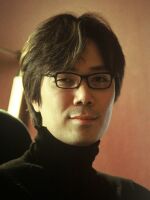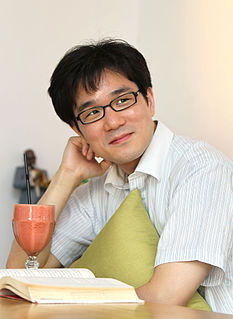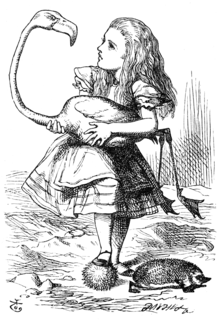Kim Tong-ni was a Korean writer.

Kim Young-ha is a modern South Korean writer.
Jo Kyung Ran is a South Korean writer.

Kim Min Jeong is a South Korean poet and literary editor.

Kang Young-sook is a South Korean novelist.
Son Bo-mi is a multiply awarded modern South Korean writer of fiction born in Seoul, South Korea.
Kim Soom is a South Korean writer. She is known for her “elaborate descriptions and aesthetic style” and for her “vivid allegories.” Her recent novels critically examine modern and contemporary Korean history. In particular, Han myeong deals with the issue of Comfort Women in the Imperial Japanese army and L eui undonghwa with South Korean democratization.
Choi Eunmi is one of the few South Korean novelists of the twenty-first century to incorporate Buddhist cosmology into her fictional universe. However, her novels are a far cry from portraying a merciful and benevolent Western Paradise. In Choi’s view, people are no different than animals that follow instinct over reason, or hungry ghosts characterized by stinginess, greed, and jealousy. Naturally, the world where such people live and interact with one another, as Choi sees it, is hell. Her second short story collection Mokryeon jeongjeon is a chilling portrayal of hell, except she chooses to tell it like an old folk tale. The title piece "Mokryeon jeongjeon" draws on Buddhist themes, having been adapted into a short story from the Buddhist scripture Lotus Sutra.
Kim Yi-seol is a South Korean writer. She was born in 1975 in Yesan, Chungcheongnamdo. She began her literary career when her short story “Yeolse sal” won the Seoul Shinmun New Writer’s Contest in 2006. She has written novellas Nappeun pi, Hwanyeong, and Seonhwa (선화). She published a short story collection, Amudo malhaji anneun geotdeul. In 2012 she won the 1st Hwang Sun-won Literary Award for New Literature, and the 3rd Munhakdongne Young Writer’s Award.
Kim Jong-ok is a South Korean writer. He began his literary career when his short story "Georiui masulsa" won the 2012 Munhwa Ilbo New Writer's Contest. For the same short story he was also awarded Munhakdongne Young Writers' Award Grand Prize.
Kim Yujin is a South Korean writer.
Choi Eun-yeong is a South Korean writer. She began her literary career in 2013, when her short story “Shokoui miso” was selected for the quarterly literary magazine Writer's World's New Writer's Award. With the same work, she received the 5th Munhakdongne Young Writer's Award in 2014. She was awarded the 8th Heo Gyun Writer's Award in 2016, and was awarded the 8th Munhakdongne Young Writer's award in 2017.
Yoon Sung-hee is a South Korean writer. Some writers believe that the goal of human life can be found in history. Some writers believe that the meaning of life is in intense moments that leave life in chaos. However, Yoon looks at life from a different perspective. She would say that the meaning of life is in the moments. In other words, the true important purpose of life is in the feeling of the present, and the diverse emotions from it such as pain, sympathy, pity, and beauty. One literary critic has stated the characteristic of Yoon's fiction as following. "The reality depicted by Yoon Sung-hee in her stories draws readers in with its colorfulness of a sensual present. Readers do not draw the story to the their own historical lives, but they choose to climb into the reality inside the story, and live along with the characters." It can be said that Yoon's literary aim is to create a reading experience that breathes with the rhythm of life, using fiction as the subject.
Baek Young-ok is a South Korean writer. Her book Style was adapted into a TV drama of the same name.
Sim Sang-dae is a South Korean writer. He began his literary career when he published "Myosachong", "Mukhoreul aneunga", and "Suchaehwa gamsang", all at the same time on Korea's quarterly publication, World Literature. In the same year, he published his first collection, Mukhoreul aneunga, and later published more collections such as Myeongokheon (명옥헌) and Tteollim. After 2006 he took a hiatus, and in 2013 he returned to the literary world with the web novel Nappeun bom published on Naver, which happens to be his first novel. He has won the 46th Hyundae Literary Award, and the 6th Kim Yujung Literary Award.
Kim Seong Joong is a South Korean writer. She studied creative writing at Myongji University and began her literary career in 2008 when “Nae euijareul dolyeojusaeyo” won the JoongAng New Writer’s Award. Her short story collections include Gaegeuman and Gukgyeongsijang.
Ki Jun-Young is a South Korean writer. She is the author of the short story collections Yeonaesoseol and Isanghan jeongyeol and the novel Waildeu peonchi.
Kim Keum Hee is a South Korean writer. She made her literary debut in 2009 when her short story “Neoui dokyumeonteu” won the Korea Times New Writer's Contest. She published her first short story collection Sentimenteoldo haruiteul in 2014. The book won the 33rd Sin Dong-yup Prize for Literature. Her short story "Jo Junggyuneui segye" received the 6th Munhakdongne Young Writers' Award in 2015. She won the same award in 2016 and 2017 for “Neomu hannajeui yeonae” and “Munsang”, respectively. Her 2016 win was for the Grand Prize.
Lee Hyeon-su is a South Korean writer. She was born in Yeongdong, Chungcheongbuk-do in 1959. She graduated from Yeungnam University in textile studies. She began her literary career when her short story “Geu jaenanui jojimeun songarak-eseobuteo sijakdoe-eotda” won the 1991 Chungcheong Ilbo New Writer’s Award. Later, she won the 1997 Munhakdongne Winter Literary Contest with her short story “Mareun naldeul sai-e” and began to commit to writing full-time. She published story collections Toran, and “Jangminamu sikgijang”, as well as novels Singisaengdyeon, Gilgatjib yeoja, and Naheul. She won the Hahn Moo-Sook Literary Prize and the Mu-young Literary Prize.

Chang Kang-myoung is a South Korean writer.









